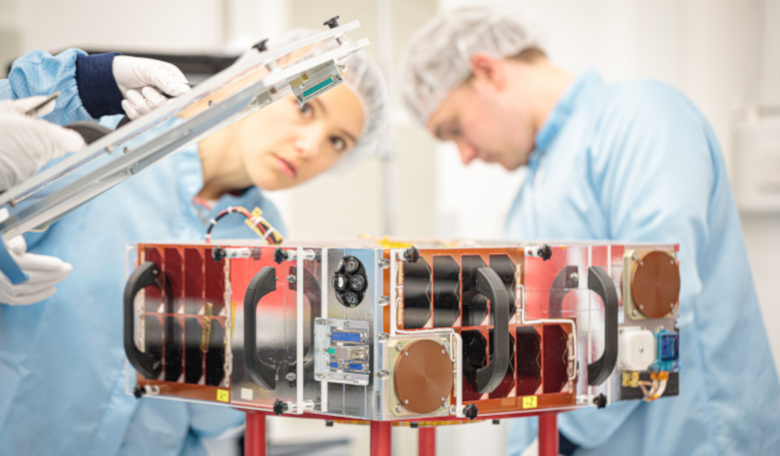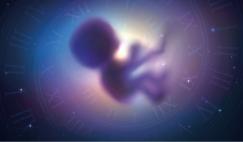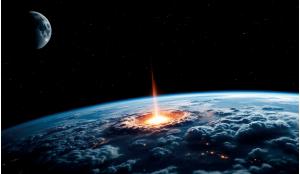Surrey Satellite Technology Ltd (SSTL) has shipped a 16kg Target satellite for Astroscale’s End-of-Life Services by Astroscale demonstration (ELSA-d) mission to Tokyo, where it will be bolted to the Chaser satellite for environmental testing ahead of launch in 2020.
The ELSA-d mission is designed to simulate capture of orbital debris and validate key technologies for end-of-life spacecraft retrieval and disposal services. The Target and Chaser satellites will be attached for launch and de-orbit, but while on-orbit at 500-600km they will be deployed in a series of increasingly complex separation and capture manoeuvres using search, identification, rendezvous, docking, and de-orbit technologies.
The ELSA-d Target satellite was designed and manufactured by SSTL in Guildford UK and incorporates S Band communications, GPS positioning, and a 3-axis control system. It will also fly an HD camera and lighting to record the capture sequences during eclipse. A ferromagnetic docking plate with optical markers is attached to the Target, allowing the ~180kg Chaser satellite to identify and estimate attitude before deploying a capture extension mechanism with a magnetic plate to latch on to the Target satellite.
Whilst rendezvous has been performed in orbit in the past, ELSA-d will demonstrate the first semi-autonomous capture of a non-responsive, tumbling Target, as well as the first identification of a Target that is outside of the field of view of the relative navigation sensors on the Chaser.
Once the demonstration concludes, the linked satellites will be moved to a lower orbit in readiness to re-enter the atmosphere where they will burn up.
Sarah Parker, Managing Director of SSTL, said “It is vital that the international space community tackles the issue of space junk and therefore I am very pleased that SSTL is involved in Astroscale’s ELSA-d inaugural end-of-life spacecraft retrieval demonstration mission. We are looking forward to following the in-orbit operations of this milestone mission.”
Nobu Okada, Founder & CEO of Astroscale, said “We are excited to receive SSTL’s Target satellite here at our Tokyo headquarters as we take the next step in this groundbreaking mission. We would like to thank SSTL for the commitment to ELSA-d and for working together to address the ongoing buildup of hazardous space debris in low Earth orbit.”
ELSA-d is scheduled to launch in 2020 on a Soyuz from the Baikonur Cosmodrome in Kazakhstan.
SSTL is at the forefront of space debris mitigation and removal activities and is the satellite platform manufacturer and spacecraft operator for the RemoveDEBRIS mission, which concluded a series of debris retrieval demonstrations in January 2019. Sir Martin Sweeting, SSTL’s Executive Chairman, is also Director of the FAIR-SPACE Hub, a UK National centre of research excellence in space robotics and AI which will address in-orbit servicing and space debris removal.
SSTL ships target satellite to Tokyo for Astroscale’s ELSA-d mission











